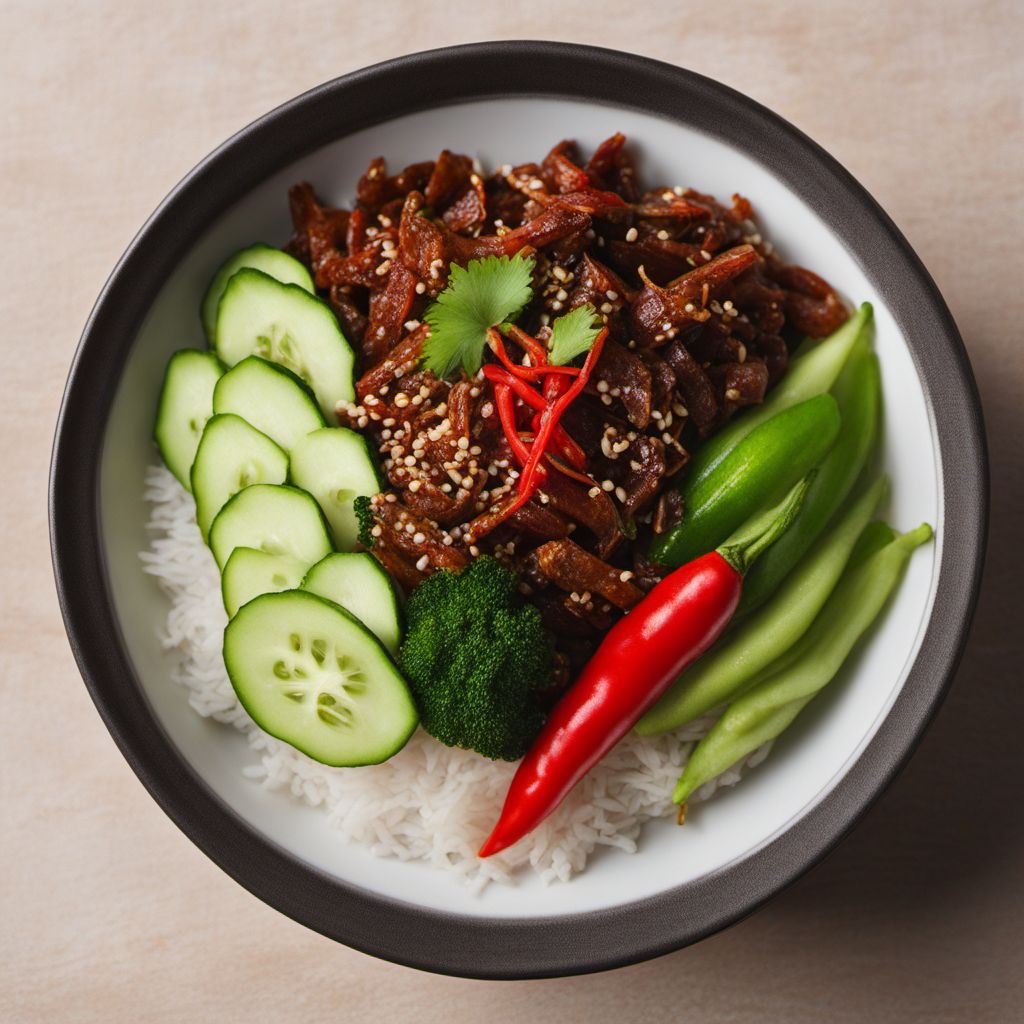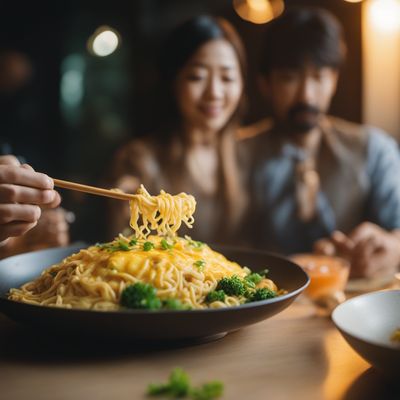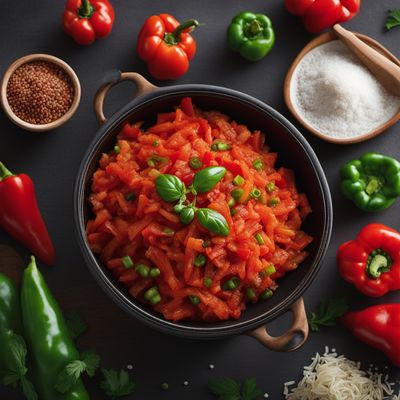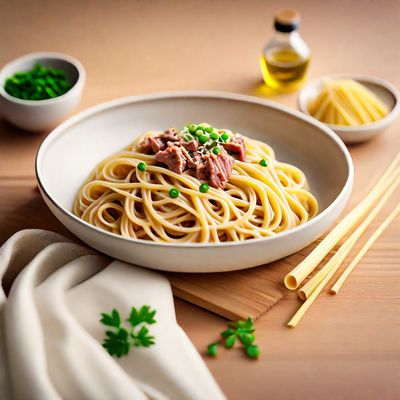
Recipe
Homemade Fukujinzuke Pickles
The Quintessential Japanese Pickle Medley: Homemade Fukujinzuke
4.7 out of 5
Indulge in the vibrant flavors of Japan with this homemade Fukujinzuke recipe. This traditional Japanese pickle medley is a delightful blend of colorful vegetables, pickled in a sweet and tangy soy-based sauce.
Metadata
Preparation time
20 minutes
Cooking time
5 minutes
Total time
25 minutes (plus marinating time)
Yields
4 servings
Preparation difficulty
Easy
Suitable for
Vegan, Vegetarian, Gluten-free, Dairy-free, Nut-free
Allergens
Soy
Not suitable for
Paleo, Keto, Low-carb, High-protein, Raw food
Ingredients
-
1 cup (240 ml) soy sauce 1 cup (240 ml) soy sauce
-
1 cup (240 ml) rice vinegar 1 cup (240 ml) rice vinegar
-
1 cup (200 g) granulated sugar 1 cup (200 g) granulated sugar
-
1 teaspoon red chili flakes 1 teaspoon red chili flakes
-
1 daikon radish, peeled and cut into thin strips 1 daikon radish, peeled and cut into thin strips
-
1 lotus root, peeled and thinly sliced 1 lotus root, peeled and thinly sliced
-
1 cucumber, thinly sliced 1 cucumber, thinly sliced
-
1 small eggplant, thinly sliced 1 small eggplant, thinly sliced
-
1 thumb-sized ginger, peeled and julienned 1 thumb-sized ginger, peeled and julienned
Nutrition
- Calories (kcal / KJ): 120 kcal / 502 KJ
- Fat (total, saturated): 0g, 0g
- Carbohydrates (total, sugars): 30g, 25g
- Protein: 1g
- Fiber: 2g
- Salt: 4g
Preparation
-
1.In a saucepan, combine soy sauce, rice vinegar, sugar, and red chili flakes. Bring to a boil over medium heat, stirring until the sugar dissolves. Remove from heat and let the sauce cool.
-
2.Place the daikon radish strips in a bowl and pour enough sauce to cover them. Let it marinate for at least 1 hour.
-
3.Repeat the same process for lotus root, cucumber, eggplant, and ginger, marinating each vegetable separately.
-
4.After marinating, transfer each vegetable along with its sauce into separate airtight containers. Refrigerate for at least 24 hours before serving.
-
5.Fukujinzuke can be stored in the refrigerator for up to 2 weeks.
Treat your ingredients with care...
- Daikon radish — Make sure to slice the daikon radish into thin strips to ensure even pickling.
- Lotus root — Peel the lotus root thoroughly to remove any tough outer layers before slicing.
- Cucumber — Use fresh and firm cucumbers for a crisp texture in the final pickle.
- Eggplant — Salt the eggplant slices and let them sit for 10 minutes to remove excess moisture before pickling.
- Ginger — Julienne the ginger finely for a subtle kick of flavor in the pickles.
Tips & Tricks
- For a spicier version, increase the amount of red chili flakes.
- Adjust the sweetness by adding more or less sugar according to your taste preference.
- Experiment with different vegetables like carrots or bell peppers to create your own variation of Fukujinzuke.
- Serve Fukujinzuke as a side dish with Japanese curry or as a topping for rice bowls.
- Use airtight containers to store the pickles and ensure they stay fresh for a longer duration.
Serving advice
Serve Fukujinzuke as a condiment alongside your favorite Japanese dishes. It pairs exceptionally well with curry, rice bowls, or even as a topping for sushi rolls. The vibrant colors and flavors of Fukujinzuke will enhance the overall dining experience.
Presentation advice
Arrange the pickled vegetables in separate small bowls or compartments to showcase the variety of colors. The visual appeal of the colorful Fukujinzuke will make it an enticing addition to any meal.
More recipes...
For Fukujinzuke
More Japanese cuisine dishes » Browse all

Chirashizushi
Chirashi Sushi
Chirashizushi is a Japanese dish that consists of sushi rice topped with a variety of sashimi and other ingredients. It is often served in a bowl...

Omusoba
Omelette with noodles
Omusoba is a Japanese dish made from stir-fried noodles and eggs. It is a popular street food that is easy to prepare and delicious to eat.

Kuri kinton
Kuri kinton is a traditional Japanese dish made with sweet potatoes and chestnuts. It is a popular dish during the fall and winter months and is...






